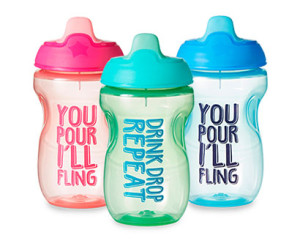On March 1, ABC7 Detroit reported on what has, according to Red Pilled, been a well-hidden secret in Washington: that National Guard troops stationed in DC have been forced to eat chicken so undercooked and raw it is pink on the inside, with a side of sharp metal shavings hidden inside the rice. Color is a lousy indicator of safety, metal shavings are a good indicator of failure.
 The meals have been so poorly cooked that dozens of Michigan’s National Guard troops had to be rushed to the hospital after falling severely ill from eating the clearly undercooked food. At least 74 meals had to be thrown out this Sunday alone after troops were dropping like flies at dinnertime.
The meals have been so poorly cooked that dozens of Michigan’s National Guard troops had to be rushed to the hospital after falling severely ill from eating the clearly undercooked food. At least 74 meals had to be thrown out this Sunday alone after troops were dropping like flies at dinnertime.
To eat for breakfast, all they get to eat is a single ‘Fruit & Nut’ bar, an apple, and a bun.
According to a news report that aired last night on ABC7 Detroit, the source who provided the story to the network said: “Yesterday for instance, there were 74 different meals found with raw beef in them. Just yesterday, the lunches were, soldiers had found metal shavings in their food.”
Speaking on the unreasonably tiny and downright disrespectful breakfast provided to the troops, paid for by Michigan taxpayers, the source commented: “You were getting maybe a danish and some sort of juice. And then we had certain days where it was clearly a dinner roll and Sunny D.”
Melissa Burke of The Detriot News wrote on Mar. 4, the caterer contracted to feed thousands of National Guard troops providing security at the U.S. Capitol defended its food service Thursday, claiming that none of the cases of reported gastrointestinal illness among soldiers have been linked to the company.
“No cases of foodborne illness can be directly tied to this vendor,” said Maria Stagliano, a spokeswoman for Sardi’s Catering in College Park, Maryland.
The response follows a Wednesday announcement by the National Guard that at least 50 service members have been sickened with gastrointestinal issues after complaints that they were served bad food while on duty guarding the Capitol.
A guard spokesman said none of those sickened have been hospitalized due to illness from the food since the Capitol security mission began Jan. 6; however, some have been treated at hospitals.
The Michigan National Guard has nearly 1,000 troops serving in Washington as part of the security mission, the largest state contingent, lawmakers say. Michigan soldiers and airmen have complained since mid-February about bad food they were served, ranging from undercooked meat to poor food quality to a lack of vegetarian options.
“We are proud to serve our food to the National Guard troops who have deployed to Washington from around the U.S., and we stand by the quality and safety of the food we deliver to the National Guard troops,” Sardi’s said in a statement released Thursday.
“As a trusted provider of nutritious and safe meals for the National Guard, Sardi’s Catering adheres to our own rigorous standards for food safety and quality, and we are in full compliance with all standards and requirements in our National Guard Bureau contract as well as state and District requirements.”
Sardi’s in its statement suggested that the Michigan guard had sent up a lopsided number of complaints about the food, compared with other states’ guardsmen.
“It is not clear why or how one particular state unit has recorded so many complaints, while there have been comparatively few complaints from other state units, according to the National Guard,” Sardi’s statement said.
 “We are committed to providing exceptional service to all our meal recipients, and we will continue to work closely with the National Guard to address these concerns.”
“We are committed to providing exceptional service to all our meal recipients, and we will continue to work closely with the National Guard to address these concerns.”
But Michigan troops aren’t the only ones complaining, with soldiers from New Jersey and Illinois also reporting bad food, according to news reports.
Republican Rep. Chris Smith of New Jersey on Thursday asked Speaker Nancy Pelosi to investigate the reports of “tainted” food that sickened at least 30 guard members from his state.
Michigan Gov. Gretchen Whitmer is headed to Washington to visit the troops Friday. She raised concerns about the undercooked food starting in mid-February with the Acting Secretary of the Army John E. Whitley.
National Guard officials said this week they are working with the contractor to fix the issues but stressed the matter is limited to a small number of incidents and is not systemic.
The guard also said it had not pinpointed the problem to a particular food source, so it could not say whether the issues are the fault of one caterer or an outside food source.
Michigan lawmakers in Washington and Lansing have called on the National Guard to fire the contractor, which was awarded an $11.4 million contract on Jan. 25 to provide meals to troops activated to help with security following the Jan. 6 Capitol attack.
Pelosi, who has registered her concerns three times with the National Guard about the issue, also agrees with ending the contract, spokesman Drew Hammill said.
“Obviously, this vendor should be discontinued. This is unacceptable,” Hammill said. “There is no room for this sort of behavior from a vendor of any federally contracted agency.”
Hammill noted that the Capitol police have offered their assistance to the National Guard by using their vendors for providing hot meals to the troops, but the guard declined that offer.
Rep. Dan Kildee, D-Flint Township, called the situation “indefensible.” “There is no excuse for treating these brave people who are putting their lives aside and their lives at risk to protect us, treating them like this is completely inexcusable,” Kildee told Fox News.
Rep. Bill Huizenga, R-Holland, and 38 other lawmakers wrote to military leaders Thursday asking the guard to provide the service members with per diem for meals for the rest of their mission and retroactively.
“Although these conditions have been widely reported and acknowledged by leadership at the National Guard, the situation does not appear to have been rectified and immediate action must be taken,” the lawmakers wrote.
Once the troops are home, Huizenga said he hopes the National Guard’s inspector general will investigate the matter.









